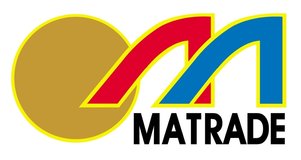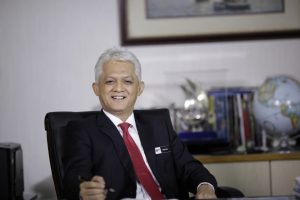Kota Kinabalu:
After an “unprecedented” 18.3 per cent dip in total exports in the last
quarter of 2008, the Malaysia External Trade Corporation (Matrade) has
gone out of its way to entice Malaysian companies into pushing exports
to China and other markets, with promises of various government support
schemes and trade promotion grants.
China is not only the largest and fastest growing consumer market in
the world but also Malaysia’s “7th largest trading partner,” noted
Roslina Long, former Matrade Trade Commissioner, Guangzhou.
“Because China’s population is so big (1.3 billion), opportunities
remain for Malaysian companies to tap into it, such as palm oil
products which are under the top five China imports from Malaysia
because of their versatile uses in cooking, food industries, cosmetics
and animal feeds,” said Roslina.
Opportunities are also open in the electrical and electronic (E&E) parts and products, she noted.
“E&E also falls under the top five products of Chinese imports from
Malaysia,” she said at a briefing on “Business Opportunities in China”
for local companies at the National Archive of Malaysia, Sabah branch,
here, Tuesday.
“E&E products are actually complementary. China also produces
E&E parts. We also import from them but because the composition is
different, China imports ours for use in their manufacturing
industries. So, we encourage Malaysian companies to establish a
presence in and invest in E&E in China,” she said.
Roslina, who spent three-and-a-half years in Guangzhou and has since
returned to be Matrade’s Senior Manager for Services Exports Fund (SEF)
Unit, says her experience in China convinced her of the benefits for
Malaysian companies participating in Matrade’s exhibitions there.
She listed the Canton Fair, the China International Small & Medium
Enterprise Fair (CISMEC), CAEXPO and China Asean Expo.
“Malaysian companies should consider participating in these exhibitions,” she told Daily Express.
“For my own area (last three years), the Canton Fair is famous. It is
well established, its history goes back 50 years. Previously closed to
foreign exhibitors, it opened to them since 2001 and Malaysian
companies immediately moved in aggressively,” she noted.
“This is one Fair for Malaysian companies to explore the China market
and tap into other foreign markets at the same time because buyers from
all over the world are invited to source products here,” Roslina
pointed out.
She cited how Malaysian companies had secured orders since its 2001
open door policy, especially from buyers of halal foods from the Middle
East, for whom Malaysia earns easy trust and acceptance, she said.
Cismec, on the other hand, is a fair designed mainly for the local Chinese market, she noted.
“It is not as big as the Canton Fair but growing. My advice is consider
participation in Cismec to promote products,” Roslina said.
“There is no question that the Chinese government likes to promote trade between China and Asean,” she said.
“The venue created for this purpose is the China Asean Expo,” she said.
“This is a good platform for Malaysian companies to establish their
presence in China and make known our products to the Chinese market,”
she said.
“The point is if they don’t know our products, how can they import them?” she asked.
“One example of good results is Nelson Corn which managed to get a good
partner during the China Asean Expo and now they have opened up
franchises in many parts of China,” Roslina cited.
She said developing a good relationship around trust, acceptance and,
finally, sale may take time, not just one time but perhaps many times.
This would be the process to remember to crack into the China market, she said.
Meanwhile, Matrade provides “assistance programmes” for companies in
Sabah to go to international trade fairs, trade missions and other
trade promotion programmes, said Syed Zahrulddin Syed Ali, Director of
Matrade Sabah.
“They can claim smart trade development grants such as airfare (economy), accommodation, etc,” he told Daily Express.
“We have Brand Promotion Grants and so far the recipients are all
Peninsular Malaysia-based and no recipients from Sabah,” lamented Syed.
“This is why I call on any Sabah company which may have a good brand to approach Matrade Sabah, to approach us,” he called.
“We’ll visit their factory and they may go international,” he said.
Possible claims sound hefty.
“For SMEs, they can claim up to RM1-2 million grants per company and it
is also open to non-SMEs, that is, big companies which can also claim
up to RM2 million per company,” Syed Zahiruddin said.
“I encourage them to visit our Sabah office (C5, 2A, 5th Floor, Block
C, EPF Building, Karamunsing). We have publications and a Resource
Centre,” he said.
Established in 1997, Matrade Sabah has about 370 members.
“My most important message is- register with us,” he said.
“Membership benefits include invitation to participate in international
trade fairs, export exhibitions in KL, free access to business library
in KL “This is open to every company, exporters or not, as long as they
are promoting Malaysian-made products,” he said.
The Services Export Fund is designed to help Malaysian companies that
have good services which they can go abroad to promote, he said.
“There are four grants under this,” said Roslina.
‘Grant 1 tender for studies. Grant 2 for negotiated projects, Grant 3
for feasibility study and Grant 4 for promoting service in the
international market,” she said.
Overall, Malaysia’s trade performance for the year 2008 recorded a 6.8
per cent growth and exports expanding 9.6 per cent and imports 3.3 per
cent, said Syed.
Total trade was RM1.185 trillion, surpassing the RM1 trillion mark for the third consecutive year.
Exports valued at RM663.51 billion and imports RM521.5 billion.
In spite of a 18.3 per cent plunge in exports in the last quarter, a
double- digit export growth of 16 per cent in the first nine months
still gave Malaysia an overall net export growth of 9.6 per cent for
2008.



